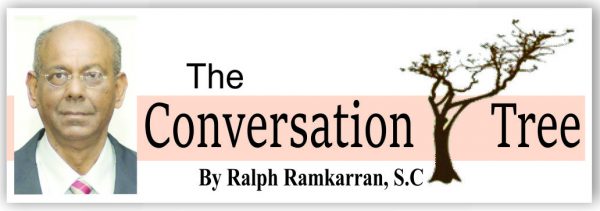
Deconstructing President Granger’s statement in his public broadcast on May 4 that “The General and Regional Elections were free, fair and orderly,” Mr. Norton said that the President did not use the word “credible,” implying that the President was not ruling out the alleged PPP frauds. But the President also said: “I have said, repeatedly, that I shall accept the declaration of the results of the Elections Commission, which will allow for a democratically-elected government to be sworn-in to office.” The absence of equivocation suggested that the President was confident that the recount would deliver “credible” results.
Having failed to stop the Caricom Mission and the recount through the Ulita Moore case, the obvious next step is to discredit the recount. Hence the allegations and the herculean struggle by highly intelligent, sophisticated and coherent persons to spout incoherent gibberish. Just read the interviews. The contradictions make them unintelligible. And what in Heaven’s name did the Honourable Minister and General Secretary of the PNCR mean when she said that: “The PPP is afraid of what I call a ‘skin up’ by all these things that are happening right now in the administrative regions.” Mixed metaphors or no metaphors?
The summary of APNU+AFC allegations made by the abovenamed persons during last week, contradicting President Granger, is contained in its statement that there were “clear and unmistakable patterns of irregularities and discrepancies and worse” in the elections, which it attributed to the PPP. Among these were: countless instances of dead persons voting in PPP strongholds, countless migrants not in Guyana voting in PPP strongholds.” There were several others.
In the first place the objections are not allowable. The Order for the recount creates GECOM’S mandate to include “the reconciliation of the ballots issued with the ballots cast, destroyed, spoiled, stamped, and as deemed necessary, their counterfoils/stubs; authenticity of the ballots and the number of voters listed and crossed out as having voted; the number of votes cast without ID cards; the number of proxies issued and the number utilized; statistical anomalies, occurrences recorded in the Poll Book.” “Authenticity of the ballots” relate to the “ballots,” that is, the ballot papers, not to the votes.
This mandate does not accommodate objections of the kinds APNU+AFC are making. The place for these objections, relating to the lawful conduct of elections or whether an unlawful act or omission is likely to have affected the results (voting by the dead or migrated), is by an election petition after the declaration of results. This jurisdiction is given by article 163 of the Constitution and section 3 of the National Assembly (Validity of Elections) Act.
There appears to be no reason for the endless objections at the recount by APNU+AFC unless it is to build a case to argue that the results of the recount should not be accepted and that the results of the elections should be declared based on the existing declarations, as has been repeatedly argued since the end of the elections and in the interviews last week. GECOM could do so. But whether it would in the absence of technical errors and in relation to matters that belong in an election petition after the results have been declared, we do not know. Vincent Alexander’s statement to the effect that the results of the recount are likely to form the basis of GECOM’s declaration of the results is reassuring.
The second set of possibilities about which observers are speculating is that APNU+AFC may move to the court to stop the recount or to annul the elections. These are not possible. Because weeks would have passed in a 2 to 3 month process, a court would most likely not grant an order to stop the recount, even if a case is made.
As regards annulling the elections, no constitutional route exists. The President may dissolve Parliament at any time within its five-year life span; but when he does so, elections must be held within three months. If Parliament is not dissolved, its life automatically ends on its five-year anniversary, and elections have to be held in three months. In time of war, the life of Parliament can be extended for up to five years, one year at a time. If Parliament has been dissolved, it can be recalled if the President determines that a state of war or emergency exists. However, the elections must proceed and Parliament shall stand dissolved the day before the elections, unless sooner dissolved. (Article 70 of the Constitution).
At this stage, therefore, elections having already been held, there is no constitutional provision or other law that will allow its annulment. The elections must be concluded by arriving at the results. Thereafter, only the court can annul the elections by way of election petition.
This column is reproduced, with
permission, from Ralph Ramkarran’s blog:





